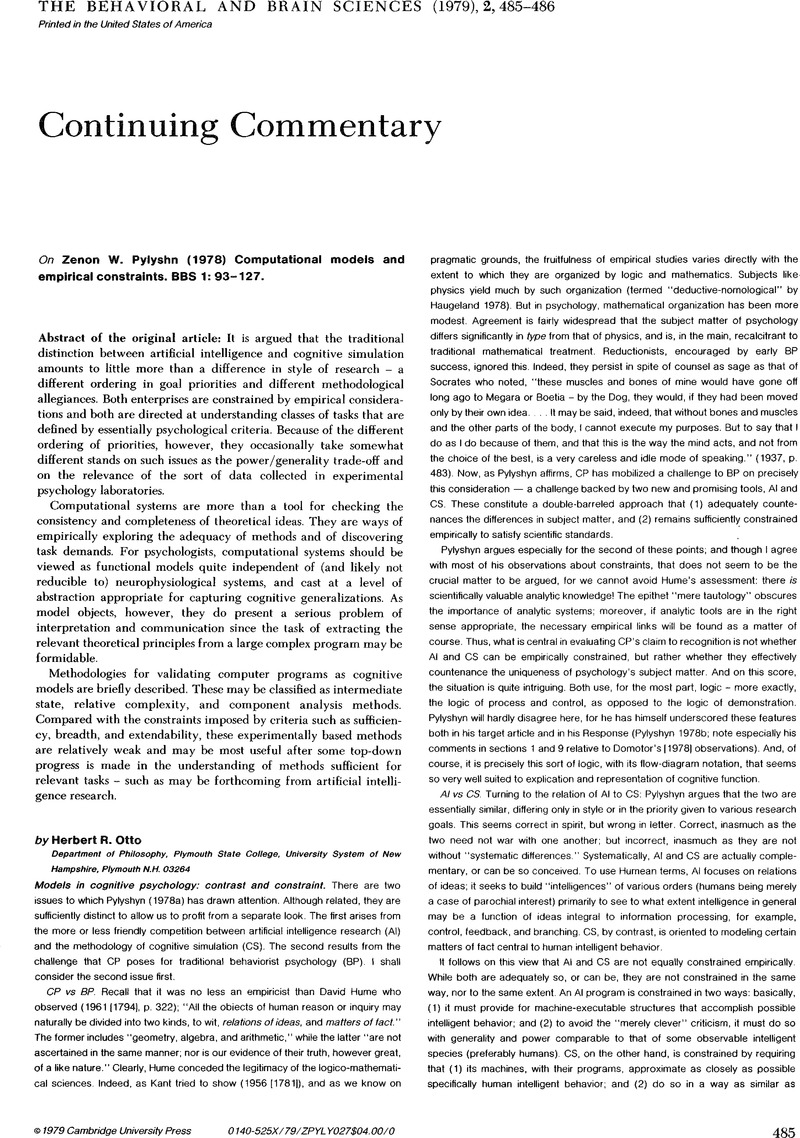No CrossRef data available.
Article contents
A broader view of psychology and of computation
Published online by Cambridge University Press: 19 May 2011
Abstract
An abstract is not available for this content so a preview has been provided. Please use the Get access link above for information on how to access this content.

- Type
- Continuing Commentary
- Information
- Copyright
- Copyright © Cambridge University Press 1979
References
REFERENCES
Domotor, Z. (1978) AI: model-theoretic aspects. The Behavioral and Brain Sciences, 1(1):104–5. [HRO]CrossRefGoogle Scholar
Haugeland, J. (1978) The nature and plausibility of cognitivism. The Behavioral and Brain Sciences, 1(2):215–60. [HRO]CrossRefGoogle Scholar
Hume, D. (1961) An enquiry concerning human understanding. Section IV, Part I. New York: Dolphin edition, Doubleday. [HRO]Google Scholar
Kant, I. (1956) Critique of pure reason. Translated by Smith, Norman Kemp. New York: Macmillan & Co. Ltd. [HRO]Google Scholar
Plato. (1937) Phaedo. In The dialogues of Plato, translated by Jowett, B.. New York: Random House. [HRO]Google Scholar
Pylyshyn, Z. W. (1978a) Computational models and empirical constraints. The Behavioral and Brain Sciences, 1 (1):93–127. [HRO]CrossRefGoogle Scholar
Pylyshyn, Z. W. (1978b) The A.I. debate: generality, goals and methodological parochialism. The Behavioral and Brain Sciences, 1(1):121–27. [HRO]CrossRefGoogle Scholar


